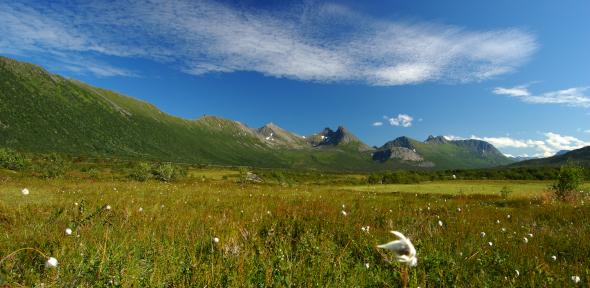
One of the two strategic directions of the Maxwell Centre is to support the University's zero carbon initiative, from technology innovation to societal and geopolitical challenges and opportunities. We were recently sponsored to produce a report on the challenges and opportunities of achieving zero carbon in the Nordic countries and were delighted to appoint Sergei Gladkov, based in the Nordic area and with a wealth of relevant experience, to research the topic and write the report. What we found particularly compelling was how complex realisation of zero carbon in the Nordic area is, once a range of inter related factors, including natural resources, technology innovation, geopolitics, economics and cultural aspirations, were considered as a whole. We are grateful to our sponsors in allowing the report to be made available to interested readers.
Report Summary:
The Nordic countries are united geographically and culturally, and have similar very high levels of economic development. Their strong political connections are reflected in membership of international organisations, and the Nordic Council of Ministers acts as the stage for expressions of common will. Against this backdrop of exceptionally high levels of cooperation and mutual understanding, individual Nordic countries have their own interests to protect and their own visions of achieving their targets. Despite these differences leading to different approaches to achieving their goals, all Nordic countries are committed to a zero-carbon future.
The Nordic countries are all signatories to key international agreements on climate change, such as the Paris Agreement and the EU Green Deal, and are active participants in international climate change events such as COP26. The different pledges made by the Nordic countries at COP26, however, reflect how difficult is to achieve unity on the road to zero carbon even between countries that share so much, and have common goals.
The challenges that Nordic countries face in achieving zero-carbon targets relate to climate directives and legislation used in the region’s specific context. Some Nordic countries, such as Sweden and Finland, object to the exclusion of biomass from the list of renewable sources of energy, whereas Norway excludes international flights from its carbon emissions list and has not yet set a timetable for ‘zero-carbon day’. Each of the Nordic countries has its own definition of carbon neutrality, Finland’s carbon neutrality depending on nuclear energy growth in the near future, while Denmark – the EU's largest oil producer – is phasing out oil and gas production in the North Sea only by 2050.
Opportunities for the Nordic countries to achieve zero-carbon targets come from a common understanding of inevitable changes that the world faces. All Nordic countries are working hard to become climate pioneers, but often in different ways. All are major supporters of climate-conscious innovation and believe in mutually beneficial climate cooperation. However, each Nordic country has its own vision of how their economies can benefit from climate transitions. Iceland, for example, is promoting carbon capture and mineralisation in rock formations and using geothermal energy; Norway is developing a Europe-wide renewable electricity grid based on hydropower plants. Finland is relying on support of innovative ventures in all areas of a carbon-free, climate-friendly economy, hoping to become a world-leading climate innovator; and Denmark is promoting construction of large-scale wind and hydrogen-powered plants, which could make the country a leader in clear energy, but all Nordic countries expect that new climate-friendly technologies and new zero-carbon sectors will boost employment and economy – as well as contributing to a zero-carbon region in what they hope will be a lower-carbon world.
Full report
Download the full report here.
